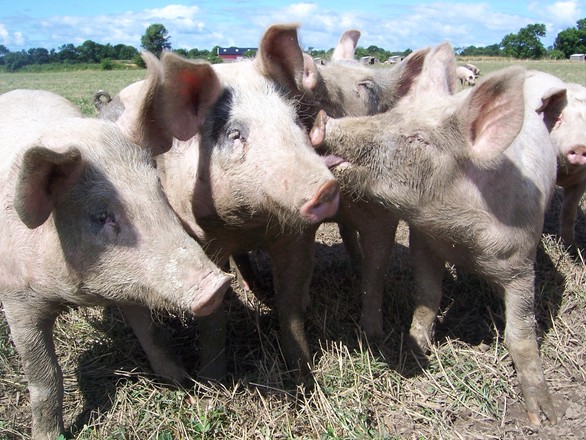

AMONG many EPO scandals we have patent scope and specifically the patenting of living organisms. The EPO should never have extended the scope of patents to the point where seeds, plants and animals become subjected to patents. This led to a public relations disaster and now to a sort of retraction that harms the EPO's reputation even more. As the law firm Marks & Clerk put it this week:
The European Patent Office (EPO) has stayed all examination and opposition proceedings relating to plants and animals obtained by essentially biological processes. This pause will give the EPO time to consider a Notice of the European Commission relating to the relevant provisions of Biotech Directive (98/44/EC). Search proceedings are not affected.
The Enlarged Board of Appeal (EBA) has previously held in the Broccoli II (G2/13) and Tomatoes II (G2/12) decisions of March 2015 that Article 53(b) EPC excludes from patentability essentially biological processes for the production of a plant or animal but that the plant or animal produced by this process may be patentable. It was decided, in effect, that the exclusion was directed to the process, not the products of that process as exclusions under the EPC must be interpreted narrowly. Our previous article discusses this in more detail.
Step 1: some "concerned" groups with political clout apply pressure upon the European Commission. Step 2: the Commission bows to that pressure and issues a note (based upon questionable legal analysis) interpreting certain legislation. Step 3: solely upon the basis of the Commission's note, one of the bodies tasked with "enforcing" that legislation stops following a ruling from the judiciary upon the very point covered by the Commission's note.
Forgive me, but would I be right in thinking that whoever at the EPO took this action clearly never heard about the concept of separation of powers?
Of course, this is also another instance in which a decision of the Enlarged Board of Appeal is effectively ignored by the EPO management. How long can this continue? And what will the judges in Karlsruhe make of it?
Complaints to the European Patent Office (EPO) are dealt with by a central EPO department known as Directorate Quality Support (DQS), which is also solely responsible for drafting and sending the official EPO response to the complainant. The default position is that both the original complaint and the reply thereto issued by DQS on behalf of the EPO are not made public, but rather are kept in the non-public part of the file to which the complaint pertains. This default position was apparently established by a decision of the President of the EPO in 2007. On the face of it, this would not appear to be a particularly contentious position, and is possibly justified given that complaints could be prejudicial to the legitimate personal or economic interests of third parties. Presumably the EPO would rather not place itself in a position of being a public outlet for any such potentially prejudicial remarks.
However, when it comes to oppositions before the EPO, a potential conflict with the above position arises owing to the conditions set out in Article 101 EPC in conjunction with Rules 79 and 83 EPC which, in summary, mandate the EPO to notify all exchanges to all parties during opposition proceedings. This would appear to include the notification by the EPO to the patent proprietor, for example, of any exchanges between the EPO, including the DQS as part of the EPO, and the opponent.